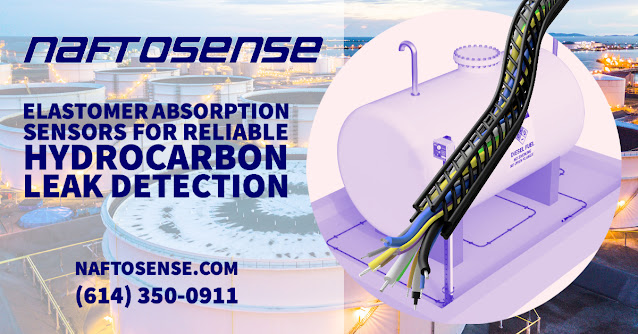Hydrocarbon leaks threaten the environment and are a concern for public health. Leaks are a significant concern for many industries, such as tank farms, diesel generator installations, fueling depots, and pipelines, as well as organizations such as oil companies and the military.
Polymer Absorption Sensors or Elastomer Absorption Sensors are sensors that can sense oil and gas leaks. These sensors work because the polymers are sensitive to oil and gas molecules. Elastomer Absorption Sensors detect hydrocarbons and other organic compounds at levels that are otherwise undetectable by other means. This type of sensor utilizes a polymer matrix to detect hydrocarbons on the molecular level without requiring complex equipment or precision instruments, such as acoustic sensors or infrared thermography. It is more sensitive than many existing leak detection sensors. Finally, they provide a non-invasive installation and are a relatively inexpensive detection method.
Sensing cables based on elastomer absorption technology are composed of semi-permeable internal conductors shielded by permeable insulation. Escaping hydrocarbon fluids contact the inner semi-permeable elastomer jacket, altering the cable's electrical characteristics and providing a reliable and repeatable signal read by the microprocessor. Along the length of the detection cable, the microprocessor can pinpoint the leak location to within one meter and send relevant information to monitoring systems or operators. The Elastomer Absorption Sensor leak detection cable is wrapped around pipelines, buried underground inside channels, or put in a pipe-in-pipe configuration.
For more information regarding any hydrocarbon leak detection requirement, contact Naftosense. Call (614) 350-0911 or visit https://naftosense.com.
